12 Online modular training programs for employees

Modular training programs offer a flexible, customizable, and cost-effective approach to learning. They allow individuals to choose the courses they need, based on their specific interests and learning goals.
What is modular training?
Modular training is an approach to learning that breaks down a larger training program into smaller, self-contained modules. It’s typically designed to be independent units of learning so that learners can easily grasp and apply the knowledge or skills being taught.
Each module focuses on a specific topic or skill, which allows learners to progress at their own pace and select the modules that are most relevant to their needs. They can start with the basics and gradually build upon their knowledge by completing additional modules. This modular structure helps them revisit specific modules for reinforcement or address specific gaps in their understanding.
Now if you’re looking for modular training courses to add to your training programs, here are our suggestions:
1. Safety in the Workplace
EdApp's Safety in the Workplace course can be used as a template to develop your modular training program. It has four sessions that address general safety themes.
It begins with an overview of occupational safety and health in the workplace. The course then delves into typical safety subjects such as safe lifting techniques, ergonomics, and the correct use of personal protection equipment (PPE). It also discusses how to avoid workplace slips, trips, and falls. While this safety program only addresses generic safety concerns, it could also be customized to meet the unique safety regulations of your workplace or sector.
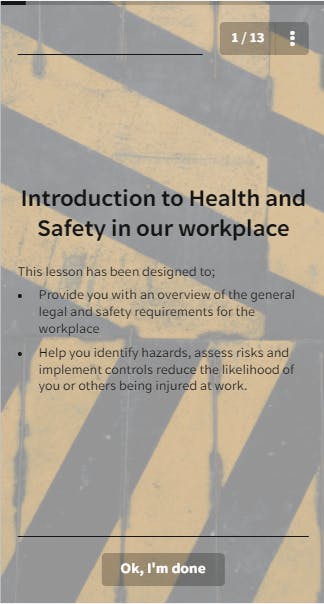
What’s more, since EdApp is a full-featured LMS for well-rounded, custom elearning, you can incorporate engagement elements like gamification to create a fun learning environment. You can also track all of your learners’ progress as they use your modules through its analytics tools.
You can also set a due date that's relative to the enrollment date of your learners with EdApp’s Relative Due Dates feature. This will help automate the training process for new and old employees.
To get started, just choose the "days after enrollment" setting. From there, specify the number of days needed to complete the course. The due date will be calculated from the date the learner has access to the course. The due date will only apply when a course is published.
Sign up for Free and Start Using The Best Modular Training Programs
2. Putting it All Together: Using Teaming to Implement DBI
We can see another example of modular training by looking at the National Center on Intensive Intervention’s course called Putting it All Together: Using Teaming to Implement DBI. This is a module to help educators learn about using teams to support data-based individualization (DBI).
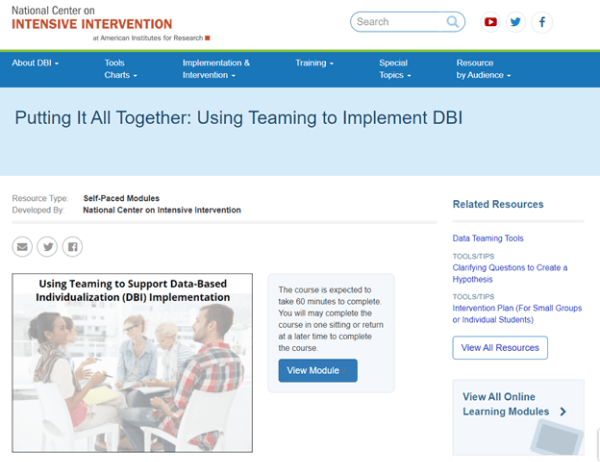
This 60-minute module helps learners determine the steps to take before, during, and after intensive intervention team meetings. It also includes lots of resources you can access afterward. Once completing the module, you also will receive a certificate to add to your credentials.
3. Data Science Fundamentals
Another place we can find many examples of modular learning includes the popular site Coursera. One instance of this is the course Data Science Fundamentals with Python and SQL Specialization. This course is a module for the Data Science track, and it allows the learner to exercise a lot of agency in the customization of their learning.
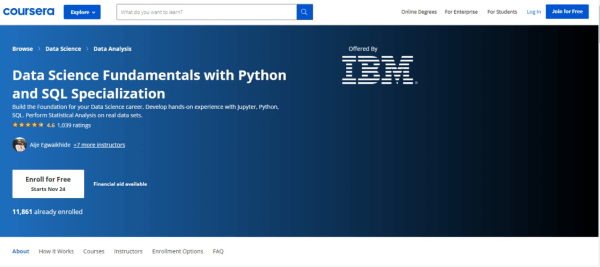
With this module, a learner can focus on statistical analysis with Python as well as relational database fundamentals. This is one of five modules that can be chosen for this particular specialization. By offering these modules, Coursera gives users the freedom to prepare for any type of career in data science that they want.
4. Discrimination in the Workplace
For another fine example of modular learning, we can again look at EdApp and examine their course Discrimination in the Workplace. With this modular courseware, you can easily pick out the sections that you want and add them to your courses. You can even import the whole course and just edit it so that it fits your needs perfectly.
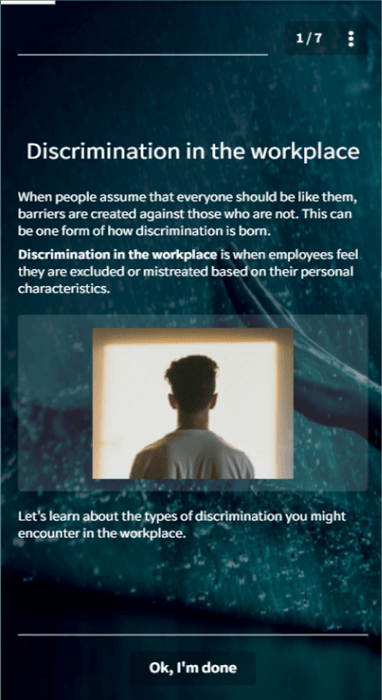
Like other courses on EdApp, this one comes will all the features of an LMS that you would expect. That includes being friendly to mobile devices so that learners can get a great m learning experience even when on the go.
5. PMC Training
We can also see a good example of modular learning at PMC Training. This site focuses on business-related topics such as leadership & management, personal development, business skills, creativity, office productivity, and technology.
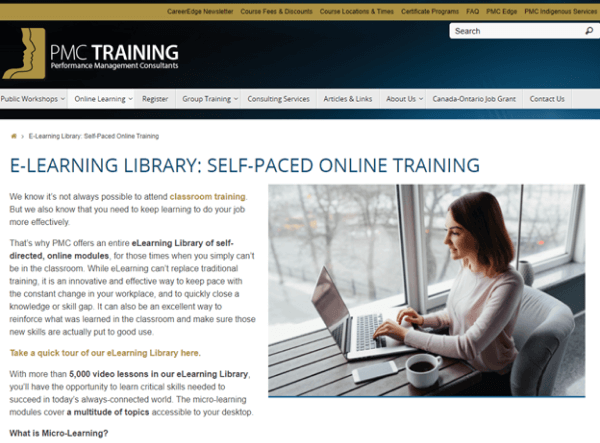
Unfortunately, the modules here are not free. However, you can get access to all modules through 1, 3, and 12-month subscriptions.
6. The Basics of First Aid
For another worthy modular training program, look again at EdApp with its useful Basics of First Aid course. With this course, you can easily pull out the modules that you need for your particular circumstance. Training restaurant staff? Then try adding the module on choking. You will love the convenience of pulling out EdApp modules for your courses.
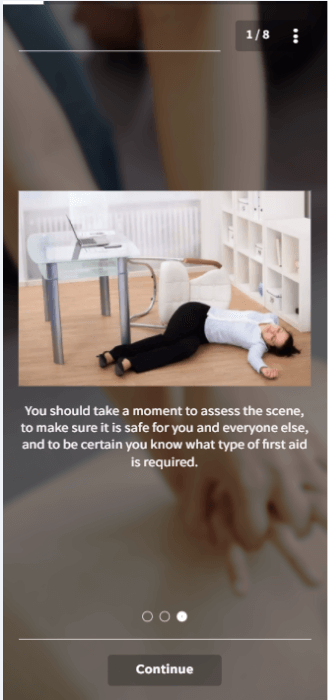
Being hosted on the EdApp platform, these modules also benefit from EdApp’s extensive assessment types through their e-Learning templates. That way, you can easily test whether your learners have picked up new skills through various quiz types.
7. Blender Castle Kitbash Ultimate Course Modular Set
How about a modular course to learn 3D digital art? With the course Blender Castle Kitbash Ultimate Course Modular Set hosted on the Gumroad site, you can learn this skill at your own pace. This course also comes with all the required extra files you will need.
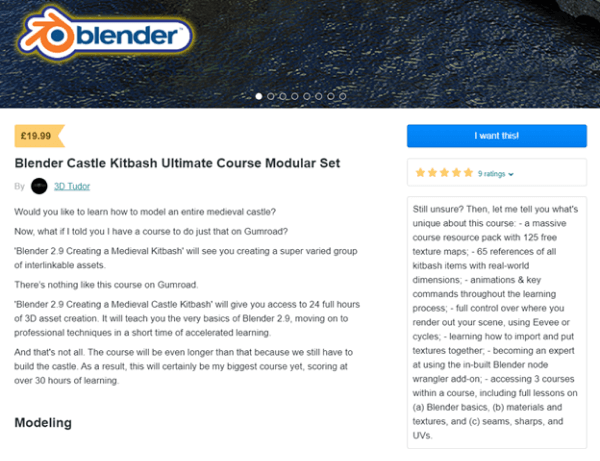
The course itself is not free to use, though. Also, it does not have full LMS features, so you won’t be able to test your learning results and receive a certificate upon completion.
8. Remote Working
For another fantastic modular training program, we can look at EdApp again with their Remote Working course. This course emphasizes ways to make remote working beneficial. Being modular, you can select certain sections, such as Structuring Your Day or Mind and Emotional Well-being, and add them to your curriculum.
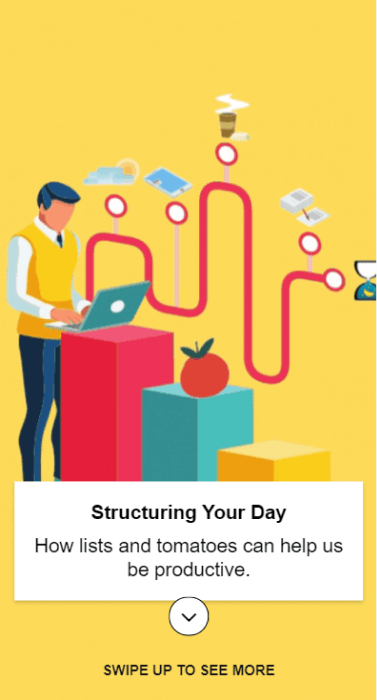
Being on the EdApp platform, these modules are highly interactive. Learners can use their devices to swipe through lessons, giving them a tactile experience that helps reinforce what they learn.
9. Travel & Tourism Certification
Another example of a modular course is on the New Skills Academy platform with their course Travel & Tourism Certification course. This course is divided into 15 modules, including popular topics like ecotourism, running promotions, and current trends.

One pain point with this course, though, is that it is a little expensive. Furthermore, unlike courses on the EdApp platform, the modules cannot be imported into your custom courses.
10. Effective Email Communication
Now, let’s look again at the EdApp platform for their course on Effective Email Communication. With this modular course, you can pull out lessons about making emails more professional and add them to any other course that you create for your corporate elearning.
Since this course is on the EdApp platform, it of course comes with many essential LMS features, such as the use of microlearning. You will be able to set up notifications that remind your learners of key concepts at times that are optimal for their learning.
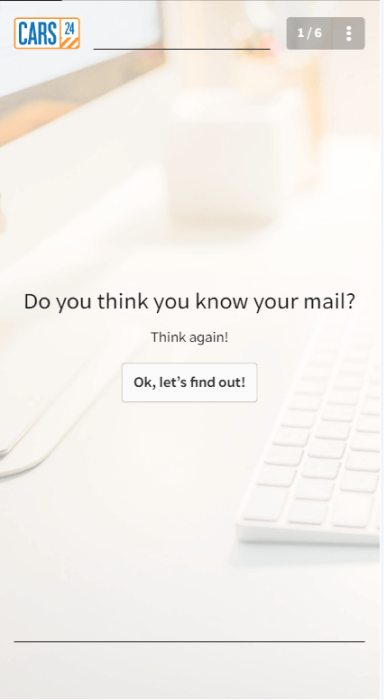
11. Leading Under Pressure
EdApp's Leading Under Pressure is a modular training program designed to equip teams with the skills to effectively lead and thrive in high-pressure situations. Developed in collaboration with renowned rescue cave diver John Volanthen, who brings his expertise from executing intricate underwater rescue missions, this course offers a unique blend of real-world experience and practical knowledge.

Through interactive modules, your team will gain valuable insights into influencing others, mastering leadership skills under pressure, and preparing for the unexpected.
This course's modular format guarantees flexibility, allowing learners to learn at their own pace and apply the knowledge immediately. From leading a crisis response team or navigating challenging work environments, this training is the perfect choice for enhancing the leadership abilities of your managers, supervisors, and aspiring leaders and making sure they can successfully tackle unforeseen circumstances.
12. Karamo's Diversity, Equity and Inclusion Training
Karamo's Diversity, Equity, and Inclusion Training is a dynamic modular program by EdApp, developed in collaboration with Karamo Brown, the beloved culture expert from Netflix's Queer Eye.

This course is a great starting point for organizations looking to foster inclusivity in the workplace. It covers important topics like diversity, equity, inclusion, unconscious bias, and microaggressions. With its modular format, learners can learn at their own pace, at any time that suits them best.
By enrolling in this training, your organization can take a significant step towards creating a more inclusive environment that embraces the strength of diversity.
In this article, we’ve taken a look at several examples of modular learning. We saw that while there are many ways to implement modules, one of the best ways is the way that EdApp handles them. What do you think about learning through modules?
Author
Guest Author Daniel Brown
Daniel Brown is a senior technical editor and writer that has worked in the education and technology sectors for two decades. Their background experience includes curriculum development and course book creation.
